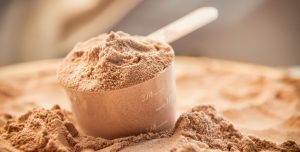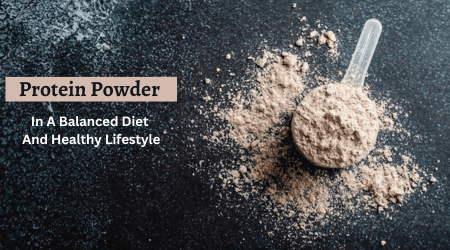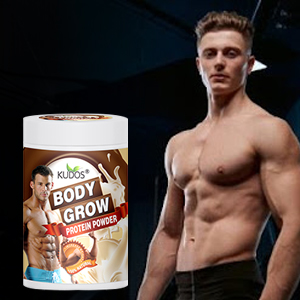The Role of Protein Powder in a Balanced Diet and Healthy Lifestyle
In today’s fast-paced world, maintaining a balanced diet and a healthy lifestyle is crucial for overall well-being. A balanced diet provides the body with essential nutrients, vitamins, and minerals necessary for optimal functioning. It helps to support a strong immune system, maintain a healthy weight, and reduce the risk of chronic diseases such as heart disease, diabetes, and obesity. Similarly, adopting a healthy lifestyle that includes regular exercise, sufficient sleep, and stress management can have numerous benefits for both physical and mental health.
When it comes to achieving health and fitness goals, protein powder has gained significant popularity as a dietary supplement. Protein is an essential macronutrient that plays a vital role in the growth, repair, and maintenance of tissues in our body, including muscles, skin, and hair. Protein powders are a convenient and easily accessible source of high-quality protein, and they can be particularly beneficial for individuals who struggle to meet their daily protein requirements through whole food sources alone.
The Role Of Protein Powder:

- Muscle Building and Recovery: Protein is essential for both the growth and repair of muscles. During exercise, especially resistance training, muscle fibers undergo microscopic damage. Consuming an adequate amount of protein post-workout helps stimulate muscle protein synthesis, aiding in the repair and growth of muscle tissue. Protein powders, such as whey protein, are rich in essential amino acids, which are quickly absorbed by the body, making them an excellent option for promoting muscle recovery and growth.
- Weight Management: Compared to carbohydrates or lipids, protein is believed to be more satiating. Including protein-rich foods or protein powder in your diet can help you feel fuller for longer, reducing hunger cravings and the likelihood of overeating. Moreover, by preserving lean muscle mass, the best protein powder for weight gain can support a healthy metabolism and enhance the body’s ability to burn calories.
- Convenience and Portability: Protein powder offers convenience, especially for those with busy schedules or limited access to whole food protein sources. It can be easily mixed with water, milk, or added to smoothies, making it a quick and portable option for a nutritious snack or meal replacement.
- Nutritional Support: Some Best protein powder are fortified with additional vitamins, minerals, and other nutrients. This can be beneficial for individuals with specific dietary needs or restrictions, such as vegans or those with lactose intolerance. It allows them to supplement their diet with essential nutrients that may be lacking in their regular food choices.
- Sports Performance: Athletes and individuals engaged in intense physical activity may have increased protein requirements to support their training and recovery. Protein powder can be a convenient way to ensure they meet their protein needs and optimize their performance.
Understanding Protein
Proteins are large molecules made up of amino acids, commonly referred to as the building blocks of life. They play a fundamental role in the human body, serving as essential components for growth, repair, and maintenance of tissues. Proteins are involved in various physiological processes and functions, such as enzyme production, hormone regulation, immune system support, transportation of molecules, and providing structural integrity to cells.
Adequate protein intake is vital for the proper functioning of the body and maintaining overall health.Here are some of the main arguments in favor of protein:
- Muscle Health: Protein is essential for the growth and maintenance of muscles. It provides the necessary amino acids to repair damaged muscle fibers and promote muscle protein synthesis, which is crucial for muscle growth and strength.
- Tissue Repair and Wound Healing: Proteins play a vital role in the repair and regeneration of tissues throughout the body. They contribute to the healing of wounds, recovery from injuries, and the production of new cells.
- Enzyme Production: The body produces enzymes, which are proteins that speed up biological processes.
- They act as catalysts, accelerating chemical reactions necessary for digestion, metabolism, and other vital processes.
- Hormone Regulation: Many hormones in the body, such as insulin, growth hormone, and thyroid hormones, are made up of proteins. These hormones play essential roles in regulating metabolism, growth, development, and various bodily functions.
- Immune System Function: Proteins are involved in the production of antibodies and immune cells, helping to strengthen the immune system and protect the body against infections and diseases.
- Transportation of Molecules: Some proteins act as carriers, transporting important molecules such as oxygen (hemoglobin), lipids (lipoproteins), and iron (transferrin) throughout the body.
The daily protein requirements for individuals can vary based on factors such as age, gender, body weight, activity level, and overall health. Here are some general guidelines:
- Adults: For healthy people, the Recommended Dietary Allowance (RDA) for protein is roughly 0.8 grams per kilogram of body weight per day.However, certain factors like regular exercise, pregnancy, or specific health conditions may increase protein needs.
- Athletes and Active Individuals: Those who engage in regular intense physical activity or strength training may require higher protein intake to support muscle repair and growth. Protein intake for athletes can range from 1.2 to 2.0 grams of protein per kilogram of body weight per day, depending on the intensity and duration of training.
- Older Adults: As people age, they may require more protein to counteract age-related muscle loss (sarcopenia). Older adults may benefit from a protein intake of around 1.0 to 1.2 grams of protein per kilogram of body weight per day.
It’s important to note that these are general recommendations, and individual protein needs may vary. Consulting with a healthcare professional or a registered dietitian can help determine personalized protein requirements based on specific factors and health goals.
Protein Powder: An Overview
Popular dietary supplements like protein powder offer a concentrated amount of protein. It is typically made by extracting protein from various sources such as whey, casein, soy, pea, hemp, or rice. Different types of Best protein powder have distinct characteristics and may suit different dietary preferences or specific needs:
- Whey Protein: Derived from milk, whey protein is a complete protein containing all essential amino acids. It is quickly absorbed by the body and is often favored for its high leucine content, which is important for muscle protein synthesis.
- Casein Protein: Also derived from milk, casein protein is a slow-digesting protein. It forms a gel-like substance in the stomach, providing a sustained release of amino acids over a longer period of time.
- Soy Protein: Made from soybeans, soy protein is a plant-based option that is also a complete protein. It is suitable for vegetarians and vegans and offers additional benefits like being low in fat and cholesterol-free.
- Pea Protein: Derived from yellow peas, pea protein is a hypoallergenic and easily digestible plant-based protein.It is abundant in lysine and other important amino acids.
- Hemp Protein: The seeds of the hemp plant are the source of hemp protein. It is a plant-based source of protein that contains all nine essential amino acids, as well as essential fatty acids.
Protein powders vary in their nutritional composition, but they are generally high in protein content. They often provide 20-30 grams of protein per serving, depending on the type and brand. In addition to protein, they may also contain varying amounts of carbohydrates, fats, fiber, vitamins, and minerals. Some Best protein powder are further fortified with additional nutrients like vitamins B12, D, or iron.
Benefits of protein powder in comparison to whole food sources:
- Convenience: Protein powder offers convenience, especially for those with busy lifestyles or limited time for meal preparation. It can be quickly mixed with water, milk, or added to smoothies, providing a quick and easily accessible source of protein.
- Portion Control: Best protein powder for weight gain allows for precise control over protein intake. This can be particularly useful for individuals tracking their macronutrient intake or aiming for specific protein targets.
- Rapid Absorption: Protein powders, especially whey protein, are known for their fast absorption rates. This makes them an ideal option for post-workout recovery, as they can quickly supply amino acids to the muscles.
- Digestive Ease: Some individuals may have difficulty digesting certain whole food protein sources, such as dairy or legumes. Protein powders, particularly plant-based options like pea or hemp protein, can be a more easily digestible alternative.
Protein Powder And Weight Management
Protein has been shown to have a significant impact on satiety and appetite control. It provides a greater feeling of fullness compared to carbohydrates or fats. Including protein in meals or snacks can help reduce hunger cravings and prevent overeating. Protein-rich foods or Best protein powder can help regulate appetite hormones, such as ghrelin and leptin, which play a role in signaling hunger and fullness.
Protein Powder as a tool for weight loss or maintenance:
Protein powder can be a useful tool for weight loss or weight maintenance. Here’s how it can be beneficial:
- Calorie Control: Protein powder is often low in calories compared to whole food protein sources. It can be an effective way to increase protein intake without significantly adding to overall calorie intake, which is important for weight management.
- Meal Replacement: Protein powder can be used as a meal replacement option, particularly in the form of protein shakes or smoothies. By substituting a higher-calorie meal with a protein-rich shake, individuals can reduce their overall calorie intake while still meeting their protein requirements.
- Macronutrient Balance: Protein powder can help individuals achieve a balanced macronutrient intake by increasing protein consumption without adding excessive carbohydrates or fats. This can be particularly beneficial for individuals following specific diets, such as low-carbohydrate or low-fat diets.
- Post-Workout Recovery: Protein powder, especially whey protein, is commonly consumed after exercise to support muscle recovery and growth. Adequate protein intake post-workout can help repair muscle damage, enhance muscle protein synthesis, and preserve lean muscle mass.
Role of protein in preserving lean muscle mass during weight loss:
During weight loss, it is important to preserve lean muscle mass while primarily targeting fat loss. When calorie intake is reduced, the body may break down muscle tissue for energy. However, consuming adequate protein can help preserve muscle mass, as well as support muscle protein synthesis. This is important because maintaining lean muscle mass helps to maintain a higher metabolic rate, which can support ongoing weight loss efforts.
Protein powder can be a convenient and effective way to increase protein intake during weight loss, ensuring that the body has sufficient protein for muscle preservation while reducing overall calorie intake. However, it’s important to remember that protein powder should be used as part of a well-rounded, balanced diet and combined with regular physical activity for optimal weight management results. Consulting with a healthcare professional or a registered dietitian can provide personalized guidance on incorporating best protein powder for weight gain into a weight management plan.
Protein Powder And Special Dietary Needs
Protein powder can be a valuable resource for individuals following vegetarian or vegan diets, as it provides a concentrated source of protein without relying solely on animal-based sources. Here’s how protein powder can benefit vegetarians and vegans:
- Plant-Based Protein Options: Many protein powders are derived from plant sources such as soy, pea, hemp, or rice, making them suitable for vegetarians and vegans. These protein powders offer a complete amino acid profile and can help meet the protein requirements of individuals who avoid animal products.
- Nutrient Enhancement: Some plant-based best protein powder for weight gain are fortified with additional nutrients like vitamins B12, D, or iron. These nutrients are commonly found in animal products, and their inclusion in fortified protein powders can help address potential deficiencies in vegetarian or vegan diets.
Protein powder as an option for individuals with lactose intolerance:
For individuals with lactose intolerance, consuming protein from dairy-based sources like milk or whey protein can be problematic due to the inability to digest lactose. Protein powders offer lactose-free alternatives that can provide the necessary protein intake without digestive issues. Here are the benefits:
- Lactose-Free Options: Many protein powders, especially plant-based varieties like soy or pea protein, are naturally lactose-free, making them suitable for individuals with lactose intolerance.
- Digestive Comfort: Protein powders that do not contain lactose can help individuals avoid gastrointestinal discomfort associated with lactose intolerance, such as bloating, gas, or diarrhea.
- Complete Protein Sources: Plant-based best protein powder for weight gain can offer a complete amino acid profile similar to animal-based sources, ensuring that individuals with lactose intolerance still receive the necessary essential amino acids for optimal health.
Protein powder for older adults and muscle maintenance:
As individuals age, they may experience age-related muscle loss, known as sarcopenia. Adequate protein intake is crucial for preserving lean muscle mass and supporting overall health. Protein powder can be particularly beneficial for older adults in the following ways:
- Increased Protein Requirements: Older adults may have higher protein requirements compared to younger individuals due to reduced protein synthesis and increased protein breakdown associated with aging. Protein powder can help older adults meet their increased protein needs and support muscle maintenance.
- Easy Digestibility: Some older adults may have difficulty chewing or digesting whole food protein sources. Protein powders, especially those made from easily digestible sources like whey or pea protein, can be a convenient option to ensure adequate protein intake without discomfort.
- Convenience: Protein powders offer a convenient way for older adults to increase their protein intake. They can be easily incorporated into meals, snacks, or smoothies, providing a quick and accessible source of protein.
Incorporating Protein Powder Into a Balanced Diet
Determining individual protein needs:
Before incorporating the best protein powder for weight gain into your diet, it’s important to determine your individual protein needs. Factors such as age, gender, body weight, activity level, and specific health goals play a role in determining the optimal protein intake for you. Consulting with a healthcare professional or a registered dietitian can help assess your specific needs and provide personalized recommendations for protein intake.
Selecting a high-quality protein powder:
When choosing a protein powder, consider the following factors to ensure you select a high-quality product:
Protein Source: Look for protein powders derived from quality sources such as whey, casein, soy, pea, or hemp. Consider your dietary preferences and any potential allergies or intolerances when selecting the protein source.
Protein Content: Check the protein content per serving. Aim for a protein powder that provides at least 20 grams of protein per serving, although specific protein requirements may vary based on individual needs.
Ingredient List: Read the ingredient list to ensure that the protein powder does not contain unnecessary additives, artificial sweeteners, or excessive amounts of sugar or unhealthy fats. Look for a protein powder with minimal ingredients and no added sugars.
Third-Party Testing: Look for protein powders that have undergone third-party testing for quality and safety. Certifications such as NSF Certified for Sport or Informed-Sport can indicate that the product has been tested for purity and to ensure it is free from banned substances.
Creative ways to incorporate protein powder into meals and snacks:
Here are some creative ways to incorporate protein powder into your meals and snacks:
- Smoothies: Blend protein powder with your favorite fruits, vegetables, and liquid (water, milk, or plant-based milk) to create a protein-packed smoothie. Customize it with additional ingredients like nut butter, spinach, or chia seeds for added nutrients.
- Overnight Oats: Add a scoop of protein powder to your overnight oats mixture for a protein boost. Combine it with oats, yogurt or milk, and your choice of toppings such as berries, nuts, or seeds.
- Protein Pancakes or Waffles: Use protein powder as a base for homemade pancakes or waffles. Combine it with whole wheat flour, eggs or flaxseed eggs, and your preferred sweetener. Serve them with fresh fruit or a dollop of Greek yogurt for added protein.
- Energy Balls: Create homemade energy balls by combining protein powder with ingredients like nut butter, oats, honey or maple syrup, and optional add-ins such as chocolate chips or dried fruits. Roll them into bite-sized balls and refrigerate for a convenient protein-rich snack.
- Protein-Enhanced Baked Goods: Boost the protein content of baked goods like muffins, cookies, or bread by adding protein powder to the batter or dough. Experiment with recipes by substituting a portion of the flour with protein powder.
Conclusion
Incorporating protein powder into a balanced diet can be a valuable strategy for meeting protein needs, supporting weight management, addressing special dietary needs, and promoting overall health and wellness. Protein powder offers convenience, versatility, and a concentrated source of protein that can complement whole food sources.
By determining your individual protein needs, selecting a high-quality protein powder, and exploring creative ways to incorporate it into meals and snacks, you can optimize your protein intake while enjoying a varied and balanced diet. Protein powder can be particularly beneficial for vegetarians, vegans, individuals with lactose intolerance, older adults, and those seeking to manage their weight or preserve lean muscle mass. Ultimately, a balanced diet and healthy lifestyle should prioritize overall dietary balance, incorporating a variety of whole foods from different food groups to meet your nutritional needs. Protein powder can be a useful addition to support your protein intake, but it should always be part of a holistic approach to nutrition, exercise, and overall well-being.
Recommended Protein Powder
When it comes to selecting a recommended protein powder, there are a few factors to consider which play a vital role in muscle recovery and reducing exercise-induced muscle damage. Whether you’re an athlete looking to enhance performance or an individual seeking to meet your daily protein requirements.




